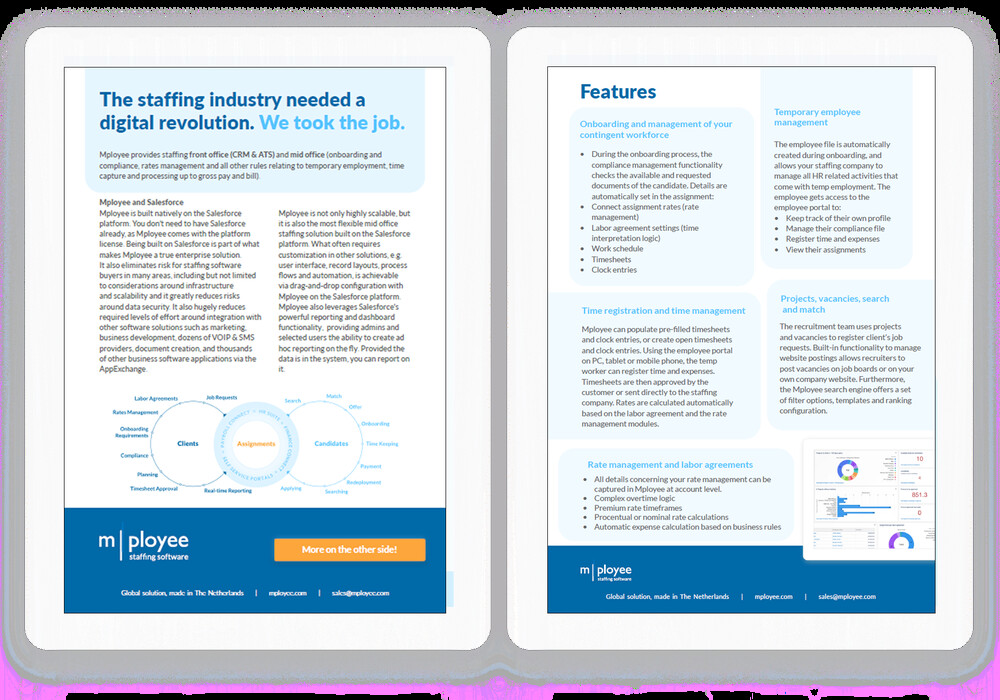The recruitment industry is often seen as a barometer for wider economic success. If times are tough in the job world, then it’s highly likely to reflect a challenging economic environment at a broader level. Equally, when things are on the up in the hiring market, it’s more often than not indicative of prosperity across other sectors and jurisdictions. However, we live in highly complex times with a number of external factors bruising national economies around the world, but what is the state of play in global recruitment and will firms be able to cope with what potentially lies ahead?

Global recruitment trends for agencies
It would be safe to say that it’s a varied field out there; and no two countries are in the same position. Each face their own individual challenges and naturally some are in a more problematic state than others. In the UK, for example, we are dealing with the effects of a variety of external factors. The ongoing Russian invasion of Ukraine is having an impact – as it is with almost every other European nation – and the longer this rolls on, the more extensive the fallout on the hiring market will likely be. But the UK is also battling other problems; like the long-term effects of Brexit combined with other more commonly felt issues like Covid, inflation rises, cost-of-living increases and a variety of socio-economic factors that are leading to widespread strikes in the coming months. If we’re not quite at Winter of Discontent levels, we are almost certainly entering the Slow Down Season.
In a more ‘regular’ downturn, if such a thing exists, it’s likely that blue collar workers would be at the forefront of job cuts and redundancies, however these markets have been cut to the bare bone in recent years leaving organisations with little wiggle room if they want to continue operating. This is a largely global shift. In the US, for example, some commentators have said a ‘decades-long’ trend has been reversed as it’s now ‘harder to find blue collar workers than white collar workers’, while the Netherlands has reported its highest number of job vacancies in over 20 years, with demand growing for the likes of hospitality workers at the quickest rate. While this is great news for the professionals themselves, it creates a challenging situation for employers and suggests firms will be relying on the contingent workforce to an even greater degree than they already are if they are to survive in the short to medium term future. The story is the same in the UK where the crunch is being particularly acutely felt in the retail and logistics sector. And, across the world in Australia, a recent study found that the three most in demand roles were machinists, welders and boilermakers, highlighting that the demand for blue collar workers is potentially being felt across continents.
Driving factors
But why are firms struggling to recruit blue collar workers, particularly on a permanent basis? The reasons behind the trend are widespread, however it’s clear that the coronavirus pandemic kickstarted much of the turbulence being experienced. Firms cut their permanent headcounts and many of those who lost their jobs, or were furloughed, sought new roles to cover costs in the downturn and haven’t returned to their previous professions. Equally, the aforementioned war in Ukraine is also playing its part and has exerted a major chaotic influence on the job market. Many professionals have also recognized how highly sought after their skills are and have opted to work on a contract or contingent basis, which is why more and more employers are leaning on this portion of the labor market.
Managing a contingent workforce
However, managing a high-volume, contingent workforce that’s potentially operating in different geographies, time zones and in varying legislative fields is challenging and time-consuming work. There are also far more employment models in play than in the past and the workforce is more flexible and operates in different ways than it has historically done.
This means that onboarding, educating and ultimately paying this sector of the workforce can create a major challenge for employers, particularly for those less familiar with working with high numbers of contractors and other contingent workers. And with this stress and turmoil – all within a testing broader environment - firms need to have a process which is efficient and streamlines many of the arduous tasks you will need to undertake, which is where Enterprise Solutions, like Mployee, can help.
Many businesses will be used to dealing with a variety of different siloed platforms and processes for the individual elements of contractor management, however there is a simpler answer. Our offer not only eliminates complexity from the staffing process by integrating every front and middle office asset into a simple and efficient software platform, from automated onboarding to rate and time management, it also adds value by engaging with the candidate and providing value and clarity along the way. Our services also incorporate core features like rate management and labor agreements, a search-and-match system for projects and vacancies, workforce and employee management as well as time registration and time sheeting services, and much more. The software integrates with existing IT infrastructures in a seamless way while also enabling plug and play add-ons and additional features when needed.
We recognize that the global hiring market is a challenging place to operate at the moment, and agencies need every advantage they can get. By removing the complexity required to manage a high-volume contingent staffing operation successfully, employers can free up time for sourcing the talent their business needs to thrive.



